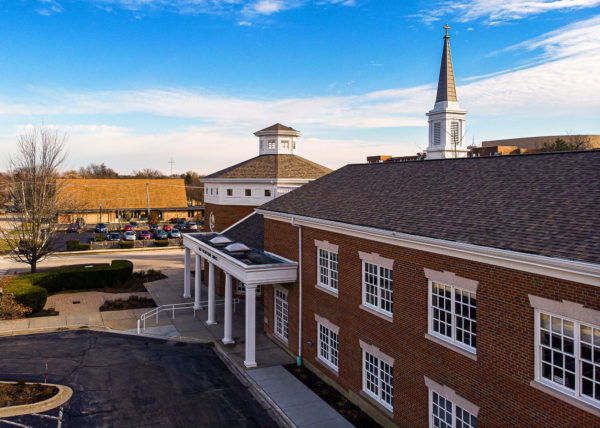Our lives are organized around several series of repeating patterns: the earth spins day into night and vice versa, the same hours repeat on a clock, the same days repeat week after week, the same months in the year, and the year always repeats with each orbit around the sun. There is never a universal decision to introduce Flubsday between Monday and Tuesday or start the year in December and work backwards. No, the pattern must repeat. To be honest, sometimes I think this way about the church calendar. Lent is a time of self-reflection. Give up something for forty days. Spend 39 days preparing for Jesus to die and one day preparing for his resurrection. Good Friday is sad. Easter is glorious. Rinse, wash, and repeat, year after year. That sounds cynical does it not? I do not mean for it to, and I promise this devotion will end more with sunshine than clouds. For the time being, hear me out.
The pandemic has put a mirror up towards the repetitiveness of our patterns, and the lack of spontaneity is getting to me. Most of us are confined to our homes, or at least far more confined than we normally would be, and our daily routines have little variance. What can be done? Well, speaking of mirrors, I would like you to take part in a social experiment for me. How many mirrors do you have in your home? We have four. This provides four, literal and direct opportunities for self-reflection each and every day, even multiple times a day. Yet, how are we using these mirrors? Brush teeth, comb hair, put on makeup, body shaming, body rejoicing, body indifference, prepare a speech, or a pretend conversation with someone. I would say these rank near the top of our use of mirrors at home.
With areas of the church being renovated, and the church itself mostly empty, I will often walk and try and look at spaces in a way I never have before. What strikes me lately is the lack of mirrors. Not that I want them, simply an observation that I do not see many. In fact, outside of the bathrooms, the only mirror I know of is in the sanctuary, and its primary purpose is so the conductor and organist can see each other. Its primary use is not one of individual reflection.
There is a collection of scripture in James 1 titled Listening and Doing (NIV) or Hearing and Doing the Word (NRSV). I like this collection not only for what it says, literally, but because of its metaphorical use of a mirror. This is what James 1:22-25 (NIV) says. 22Do not merely listen to the word, and so deceive yourselves. Do what it says. 23Anyone who listens to the word but does not do what it says is like a man who looks at his face in a mirror 24and, after looking at himself, goes away and immediately forgets what he looks like. 25But the man who looks intently into the perfect law that gives freedom, and continues to do so, not forgetting what he has heard, but doing it—he will be blessed in what he does.
James is telling us to live out our beliefs (Jesus’s words), consistently, through our actions. Consistently, mind you. This is the warm up act to his “faith without deeds is dead” whammy. Read the scripture again and pay close attention to the metaphorical use of the mirror and the perfect law that gives freedom. There is another message here, a reminder. Do not deceive yourself upon self-reflection. Take time. Let your guard down. Be vulnerable. Look intently and be honest about what you see. About who you are, who you have been, and who you want to be. Much like the word, the truth will set you free. Free to pivot towards improvement and free of the self-deceptive weight we sometimes try and hide from ourselves and others.
I think there is a reason why the church is not filled with mirrors the way most homes are. The work to be vulnerable begins at home, so that when we are at church, we can be vulnerable with each other. Free. Free to live out the words of our faith through our actions. Consistently, not seasonally. May this season of Lent bring about a newfound sense of honesty and self-reflection for us all. Amen.


